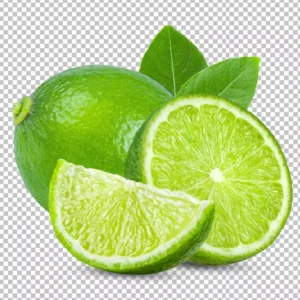In today’s fast-paced world, the evolution of artificial convenience has led food freezing to be widely adopted as a means of prolonging the shelf life of food. While freezing can buy time by keeping food fresh and preserving nutrients, there are certain food items which should not be kept in a freezer. It is also important to identify how well certain foods are suited for freezing and which ones must be avoided in order to maintain tasted, texture and nutritious value. We’ll touch on the subject matter of five foods you shouldn’t keep longer than three months in a freezer and the logic behind it.
Dairy Products
We have dairy as a household food necessity like milk, cheese and yogurt, but when kept in the freezer, they don’t often survive for extended periods. When it comes to storing dairy products, Large Chest Freezers offer ample space for keeping items like milk, cheese, and yogurt at optimal temperatures, but it’s important to avoid freezing them for over three months to prevent texture and flavor degradation. Frozen food can only stop bacteria growth at the moment but the unacceptable texture and flavor can be caused by it. Case of milk, the separated portion due to warm temperature may develop grainy appearance during thawing process. Soft cheese can become crumbed and lose its creamy consistency while yogurt will separate and turn watery.
Leafy Greens
Leafy greens which are spinach, kale, and lettuce are exemplary in their nutritional value; yet, they are not viable for continuous freezer storage. The water in their cell walls may expand, which results in cell walls rupture and an ultimate mushy texture of the green when thawed. Yet another aspect in which freezing can damage the natural quality of leafy greens is the depletion of the fragile vitamins and minerals, which play an essential role in preserving their nutritional value.
Fried Foods
For instance, fried foods such as French fries, chicken nuggets, and spring rolls may seem like good default candidates for freezer storage, but their crispiness and other relishes can disappear quickly if frozen for too long. Due to the moisture present in these products, they often have a desirable texture at the time of freezing; however, they may become soggy upon thawing and thereby somewhat unappetizing. On the other hand, the problem arises from the high fat content present in fried foods that makes them likely to be spoilt or become rancid when they are stored in the freezer for longer periods of time.
Delicate Herbs
The aromatic fresh herbs like basil, cilantro, and parsley can impart the fantastic flavor to the dish, but they will not freezer well for longer time periods also. The herbs that possess fragrance and flavors perish under the freeze, hence, they are not used as culinary ingredients. Besides, the water content in herbs lead to them being transformed into a mushy and dull looking look when subjected to freezing, thereby diminishing their esthetic value. Rather than freezing, star anise can be air-dried to save space and is best used fresh to get the best aroma and flavor.
Cooked Pasta
Similarly, though already-cooked pasta is a staple food that one can combine with many other dishes, it has extremely limited freezer storage potential. Frozen different types of pasta can become mushy and clump together when cooked. Such texture will create disappointment rather than an appetite. More importantly, the freezing process can sometimes ruin the flavor of the pasta so that it tastes dull or even unacceptable when it’s thawed.
Cooked pasta, a versatile culinary canvas, often finds its way into a myriad of dishes, from classic spaghetti and meatballs to creamy fettuccine Alfredo. While it serves as a quick and convenient meal option, its potential for freezer storage is notably limited.
Once cooked, pasta undergoes a transformation in texture and taste, losing much of its resilience and vibrancy. Freezing exacerbates this issue, as the moisture within the pasta crystals forms ice, leading to a mushy consistency upon thawing. Moreover, frozen pasta tends to clump together, making it challenging to separate and serve without resembling a starchy mass rather than individual strands or shapes.
Conclusion
Cold storage technique can be effective for saving food but not every kind of food are suitable for long term storage in freezer. Providing you do not freeze certain foods for an excess three months, you will manage to preserve their taste and nutrition. There are dairy products and leafy vegetables that are examples of the many foods that freeze well. Being able to differentiate between the good freezer foods and the not so good ones will enable you determine which foods will be the best for you in terms of food preservation. Through these steps, you will be able to make sure that you will have delicious foods that will even be nutritious even though the foods will be frozen for longer periods. Visit Refine Fitnes for more interesting blogs.





